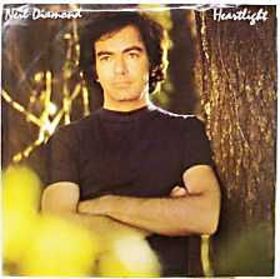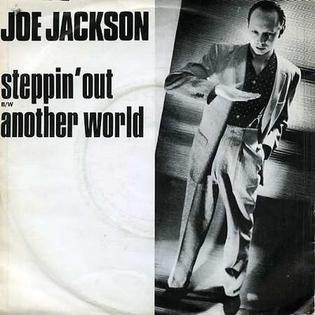
"Hotel California" is the title track from the Eagles' Hotel California album, released as a single in February 1977. Songwriting credits go to Don Felder (music), Don Henley, and Glenn Frey (lyrics). The Eagles' original recording of the song features Henley singing lead vocals and concludes with an iconic 2 minutes and 12 seconds long electric guitar solo performed by Felder with a Gibson EDS-1275 double neck and Joe Walsh with a Fender Telecaster, in which they take turns of playing the lead before harmonizing and playing the arpeggio towards the fade-out.

"Blue Bayou" is a song written by Roy Orbison and Joe Melson. It was originally sung and recorded by Orbison, who had an international hit with his version in 1963. It later became Linda Ronstadt's signature song, with which she scored a Top 5 hit with her cover in 1977. The song has since been recorded by many others.

"Life's Been Good" is a song by American singer-songwriter and multi-instrumentalist Joe Walsh that first appeared on the soundtrack to the 1978 film FM. The original eight-minute version was released on Walsh's 1978 album But Seriously, Folks..., and an edited four-minute single version peaked at No. 12 on the US Billboard Hot 100, remaining his biggest solo hit.

"I Can't Tell You Why" is a song by the American rock band Eagles that appeared on their 1979 album The Long Run. It was written by band members Timothy B. Schmit, Glenn Frey and Don Henley. Recorded in March 1978, it was the first song finished for the album and the first Eagles song to feature Schmit on lead vocals. Released as a single in February 1980, it became a Billboard top 10 hit in April, reaching number eight on the Billboard Hot 100 and number three on the Adult Contemporary chart. It was the group's last top ten hit on the Billboard Hot 100.

"Fat Bottomed Girls" is a song by the British rock band Queen. Written by guitarist Brian May, the song appears on the band's seventh studio album Jazz (1978) and later on their compilation album Greatest Hits. When released as a single with "Bicycle Race", the song reached number 11 in the UK Singles Chart and number 24 in the Billboard Hot 100 in the US.

"Let My Love Open the Door" is a song written and performed by Pete Townshend from his 1980 album Empty Glass. That year, it reached number nine on the Billboard Hot 100. It peaked at number five on RPM's Top 100 singles chart.

"Fly Like an Eagle" is a song written by American musician Steve Miller for the album of the same name. The song was released in the United Kingdom in August 1976 and in the United States in December 1976. It went to number two on the US Billboard Hot 100 for the week of March 12, 1977. The single edit can be found on Greatest Hits (1974–1978). It is often played in tandem with "Space Intro". On the album, the song segues into "Wild Mountain Honey".

"Dirty Laundry" is a song written by Don Henley and Danny Kortchmar, from Henley's debut solo album I Can't Stand Still, released in 1982. The song hit number 1 on the Billboard Top Album Tracks chart in October 1982, prior to being issued as a 45 rpm single. Lyrically, the song describes mass media sensationalism.

"Heartache Tonight" is a song written by Don Henley, Glenn Frey, Bob Seger and J. D. Souther, recorded by the Eagles and features Glenn Frey on lead vocals. The track was included on their album The Long Run and released as a single in 1979. It reached No. 1 on the U.S. Billboard Hot 100 in November of that year and was certified Platinum by the Recording Industry Association of America representing one million copies sold. It was the Eagles' final chart-topping song on the Hot 100.

"Take It to the Limit" is a song by the Eagles from their fourth album One of These Nights from which it was issued as the third single on November 15, 1975. It reached No. 4 on the U.S. Billboard Hot 100 and was also the Eagles' greatest success to that point in the UK, going to No. 12 on the charts. Billboard ranked it as the No. 25 song for 1976.

"Life in the Fast Lane" is a song written by Joe Walsh, Glenn Frey and Don Henley, and recorded by American rock band Eagles for the band's fifth studio album Hotel California (1976). It was the third single released from this album, and peaked at No. 11 on the Billboard Hot 100.
"In the Mood" is a song by the Canadian rock band Rush from their 1974 debut album Rush. It was at least two years old when recorded for the album.

"Grease" is a song written by Barry Gibb and recorded by Frankie Valli : it was released as a single in May 1978. It is the title song for the musical motion picture Grease of that year, which was in turn based on the 1971 stage play Grease. Valli's song message celebrates the greaser lifestyle, and it sold over seven million copies worldwide and appeared twice on the film's soundtrack, first as the opening track and again as the closing track. "Grease" was one of four songs written specifically for the film that had not been in the stage production.

"Heartlight" is a song written by Neil Diamond, Carole Bayer Sager and her then-husband, Burt Bacharach, and recorded by Diamond in 1982. It is the first track on Diamond's 1982 album, also titled Heartlight, and reached number five on the Billboard Hot 100, becoming his thirteenth top 10 hit on the chart. It also spent four weeks atop the adult contemporary chart in late 1982, and was the last of his eight #1s on that chart. Reportedly, it was inspired by the 1982 film E.T. the Extra-Terrestrial, and Diamond allegedly settled with MCA/Universal for $25,000, due to its supposedly drawing on the material of the film.

"The Long Run" is a song written by Don Henley and Glenn Frey and recorded by the Eagles. The sound of the song is viewed as a tribute to the Stax / Memphis rhythm and blues sound. It was the title track of their album The Long Run and was released as a single in November 1979. It reached No. 8 on the U.S. Billboard Hot 100 in early 1980. It was the second of three singles released from The Long Run album, preceded by "Heartache Tonight," which reached No. 1 on the Billboard Hot 100 in November 1979, and followed by "I Can't Tell You Why," which also reached No. 8 on the Billboard Hot 100, in the spring of 1980.

"Steppin' Out" is a song by English musician Joe Jackson, originally included on his 1982 album Night and Day. The song, inspired by Jackson's time in New York City, was his highest-charting single in America, where it peaked at number 6 on the Billboard Hot 100. It reached the same position in Jackson's native UK.

"I Just Want to Be Your Everything" is a song recorded by Andy Gibb, initially released in April 1977 as the first single from his debut album Flowing Rivers. It reached number 1 on the Billboard Hot 100 for three weeks, starting on the week ending 30 July 1977, and again for the week ending 17 September 1977. It was Gibb's first single released in the United Kingdom and United States. His previous single, "Words and Music" was only released in Australia. It is ranked number 26 on Billboard's 55th anniversary All Time Top 100.

"You Belong to Me" is a song written by American singer-songwriters Carly Simon and Michael McDonald. Originally recorded by McDonald's rock group The Doobie Brothers for their seventh studio album, Livin' on the Fault Line (1977), the song was made famous by Simon when she recorded it for her seventh studio album, Boys in the Trees (1978). A live version of the song from The Doobie Brothers' 1983 album Farewell Tour would later chart on the Pop Singles chart at No. 79 in August 1983.

"Boulevard" is a song written and performed by American singer-songwriter Jackson Browne. It is from his 1980 album Hold Out. When it was released as a single, it entered the Billboard Hot 100 chart at position number 72 on July 5, 1980. It peaked at number 19 and spent 16 weeks on the chart, the fifth-biggest hit of Browne's Top 40 career. Besides the United States, the song was also released as a single in Spain, Japan, the U.K., Italy and Germany. In Canada, "Boulevard" reached number four.

"It's All I Can Do" is a song by the American rock band the Cars. It is the third track from their 1979 album Candy-O. It was written by the band's leader and songwriter Ric Ocasek, and features bassist Benjamin Orr on vocals.



















